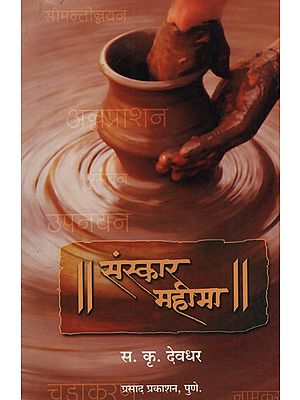Small Sanskrit Thoughts with Hindi Meaning
Sanskrit, one of the oldest languages in the world, is rich in philosophical and spiritual wisdom. The small thoughts or quotes from Sanskrit encapsulate profound meanings that can inspire and guide us in our daily lives. These succinct expressions often carry deep insights about life, relationships, and human nature, and when translated into Hindi, they become even more relatable for many who seek to understand their significance better. In this article, we will delve into some small Sanskrit thoughts along with their Hindi meanings, exploring their essence through various lenses.
The Essence of Sanskrit Wisdom

Sanskrit has been a medium for expressing complex thoughts simply and beautifully. Many of these thoughts focus on self-awareness, ethics, love, and morality. Let’s explore some themes related to these small Sanskrit thoughts, emphasizing their relevance in contemporary society.
Understanding Self-Awareness Through Sanskrit Quotes

Self-awareness is crucial for personal growth and development. It allows individuals to reflect on their thoughts, emotions, and behaviors.
The Importance of Self-Reflection
In Sanskrit, there are numerous phrases emphasizing the value of introspection. One such thought is “स्वधर्मं समाचरेत” (Svadharmaṃ samācaret), which translates to “One should perform their own duty.”
This quote invites us to look inward and recognize our unique paths in life. In a world filled with comparisons, this thought reminds us that each individual has a distinct purpose and responsibility. When we take time to reflect on our duties and align them with our values, we foster a sense of fulfillment and authenticity.
The Journey of Self-Discovery
Another profound thought is “आत्मनं विन्दते” (Ātmanaṃ vindate) meaning “One discovers oneself.” This statement encompasses the entire journey of finding and understanding one’s true self.
The process of self-discovery involves peeling back layers of societal expectations and preconceived notions formed since childhood. It suggests an internal journey that fosters self-acceptance and improvement that forms an essential part of personal growth.
Cultivating Mindfulness
Mindfulness, as expressed in the phrase “सर्वं ज्ञानं मनसा” (Sarvaṃ jñānaṃ manasā), translates to “All knowledge comes from the mind.”
This thought encourages us to be present in our actions and thoughts. By cultivating mindfulness, we become more aware of our surroundings, thoughts, and feelings. It enables us to live more fully and authentically without being overwhelmed by future anxieties or past regrets. The practice of mindfulness can enhance our emotional intelligence and resilience.
Love and Relationships in Sanskrit Thought

Relationships form the core of human experience. Sanskrit wisdom deeply explores the concept of love, devotion, and connections between individuals.
The Nature of True Love
“प्रेम सर्वत्र अस्ति” (Prema sarvatra asti) translates to “Love exists everywhere.” This simple yet powerful thought signifies the omnipresence of love in our lives.
When we grasp this principle, it transforms our perspective toward relationships. Love isn’t limited to romantic associations but extends to friendships, family bonds, and even compassion towards strangers. Embracing this ideology can lead to an enriched interpersonal experience, where empathy and understanding flourish.
Devotion and Commitment
Another important Sanskrit thought is “भक्ति सर्वदा” (Bhakti sarvadā) meaning “Devotion always.”
Devotion plays a vital role in nurturing relationships. It reflects commitment, trust, and loyalty. This thought encourages us to cultivate a sense of dedication not only to friends and partners but also to our communities and ourselves. Understanding the importance of devotion leads to stronger, healthier relationships, characterized by mutual respect and support.
Building Strong Connections
The expression “संयोगः सदा सुखः” (Saṃyogaḥ sadā sukhaḥ) translates to “Union brings happiness.”
This thought underscores the joy found in connections. Humans are inherently social beings, and forming bonds with others facilitates emotional and psychological well-being. Whether through friendships, mentorships, or familial ties, the act of connecting contributes to overall happiness. In times of struggle, the support from loved ones can provide immense strength and comfort.
Ethics and Morality in Sanskrit Phrases
Sanskrit encourages us to lead ethical lives, aligned with moral principles that foster harmony and justice.
The Role of Dharma
“धर्मो रक्षति रक्षितः” (Dharmo rakṣati rakṣitaḥ) translates to “Dharma protects those who protect it.”
This thought illustrates the importance of living a life rooted in righteousness. Upholding dharma—our moral obligations and duties—instills a sense of purpose and direction. When we act ethically, we contribute to a just and harmonious society, creating a positive ripple effect for those around us.
The Value of Truth
“सत्यं वद” (Satyaṃ vada) means “Speak the truth.”
Truthfulness is a fundamental virtue in many cultures, including those influenced by Sanskrit literature. Emphasizing honesty cultivates trust and respect in relationships. By committing to truthfulness, we pave the way for constructive dialogue, greater understanding, and lasting credibility in our interactions with others.
Compassion and Empathy
“करुणा सर्वत्र” (Karunā sarvatra) translates to “Compassion is everywhere.”
The notion of compassion emphasizes kindness and understanding towards others. In a world often marked by conflict and division, this thought serves as a reminder of the shared humanity that binds us all. Practicing compassion enriches our lives and fosters a sense of community, urging us to lend a helping hand to those in need.
FAQs

What is the significance of small Sanskrit thoughts?
Small Sanskrit thoughts encapsulate profound wisdom and insights about life, relationships, and ethics, making them relevant even in modern contexts.
How can I incorporate these thoughts into my daily life?
You can reflect on these thoughts during meditation, journaling, or even when facing challenges, allowing their meanings to guide your decisions and actions.
Are there specific Sanskrit thoughts focused on personal growth?
Yes, many quotes emphasize self-awareness, introspection, and self-discovery, which are key components of personal growth.
How do these thoughts connect with Indian philosophy?
These thoughts are deeply rooted in the philosophies of Hinduism, Buddhism, and Jainism, promoting values like dharma, truth, and compassion.
Can these thoughts be applied universally?
Absolutely! While they originate from a specific cultural context, the underlying principles resonate universally, transcending geographical and linguistic barriers.
Conclusion

The small Sanskrit thoughts with Hindi meanings serve as windows into the rich tapestry of ancient wisdom. They offer timeless guidance on navigating the complexities of life, emphasizing self-awareness, love, ethics, and compassion. By reflecting on these thoughts, we can deepen our understanding of ourselves and our relationships, ultimately leading to a more meaningful existence. Incorporating these insights into our lives not only enhances our personal growth but also nurtures a more compassionate and harmonious world. As we embrace these teachings, we honor the legacy of Sanskrit and its enduring relevance in fostering well-being and understanding in contemporary society.
